A good book can be an absolute pleasure but research shows that the right book can also be a healing tool.

When Rese Rose suddenly became very ill, a friend gave her a gift voucher for an unusual treatment called bibliotherapy. Rose says she was “deeply intrigued at what it may offer, probably because my approach to health has never been completely conventional”.
Bibliotherapy involves using literature to aid mental and emotional healing. The term comes from two Greek words: biblion, meaning book, and therapeia or healing. The term was coined in 1914 by American minister and author Samuel Crothers who described bibliotherapy as a “process in which specific literature, both fiction and non-fiction, was prescribed as medicine for a variety of ailments.”
While the term is relatively new, the benefits of bibliotherapy have been recognised for millennia. The ancient Egyptians, for example, had an inscription above the portal of the library of Pharaoh Ramses II, describing it as “the house of healing for the soul”.
Bibliotherapy was used by medical professionals like Sigmund Freud in the early 20th century. During World War I, as doctors and nurses searched for ways to help soldiers with their mental health, the idea came into its own.
A pioneer of bibliotherapy, Helen Mary Gaskell, described the beginnings of her war library in 1918: “Surely many of us lay awake the night after the declaration of War, debating ... how best we could help in the coming struggle ... Into the mind of the writer came, like a flash, the necessity of providing literature for the sick and wounded.”
Recent years have seen a resurgence of interest in bibliotherapy as studies explore its benefits for common mental health conditions like depression, stress, anxiety, social phobia and addictions.
Bibliotherapy in practice
Diese Geschichte stammt aus der Issue 181-Ausgabe von WellBeing.
Starten Sie Ihre 7-tägige kostenlose Testversion von Magzter GOLD, um auf Tausende kuratierte Premium-Storys sowie über 8.000 Zeitschriften und Zeitungen zuzugreifen.
Bereits Abonnent ? Anmelden
Diese Geschichte stammt aus der Issue 181-Ausgabe von WellBeing.
Starten Sie Ihre 7-tägige kostenlose Testversion von Magzter GOLD, um auf Tausende kuratierte Premium-Storys sowie über 8.000 Zeitschriften und Zeitungen zuzugreifen.
Bereits Abonnent? Anmelden
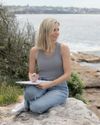
YOGA FOR IMPERFECTION
Life is messy and we all make mistakes, but by embracing imperfection, we can begin to accept all parts of ourselves.
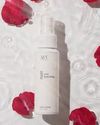
Creating the foundations of ritualist self-care
As a busy mum of a three-year-old and expecting another baby, finding time for self-care often feels like a luxury.

Are you doom spending?
If \"doom spending\" has become your go-to for coping with stress, you could be making withdrawals from not just your bank account, but your health too.

THE POWER OF music
Most of us enjoy music. But science shows music is central to being human and its effect on us is far more astonishing and impactful than we realise. Music is fundamental to life.

SYNTHETIC FOODS
Synthetic, or genetically modified, fake meats and the like attempt to mimic real meat in both looks, taste and texture. But how much do we really know about the production process and how do they affect the environment and our bodies?
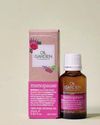
Embracing the power of nature
Menopause is more than just a biological change, it represents a significant life stage that can present numerous challenges - from hot flushes and mood swings to fatigue and sleepless nights.
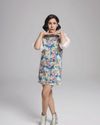
Jan Fran
From a young age, Jan Fran's deep curiosity and keen interest in social issues sparked her journey into the world of journalism. As an accomplished journalist, media commentator and broadcaster, Fran's passion for storytelling has always been driven by a desire to explore, question and shed light on the world around her.

Helping teen girls thrive
Statistics reveal that many more teen girls are struggling with mental health issues. What's going on with them? More importantly, what can we do to help them flourish?
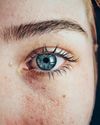
Your ageing eyes
Your eyes work hard for you every waking minute. It is no surprise that how your eyes age will be determined by how you protect them. Eating the right foods can go along way towards ensuring that your eyes stay healthy for a lifetime.
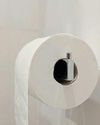
The bottom line
During the Couid pandemic, we were shocked to see people fighting in supermarkets over toilet paper and to see empty shelves that had once held roll after roll. The reasons behind the run for toilet paper during this time reflect the unique place that it holds in our psyche and are deeply rooted in our history.